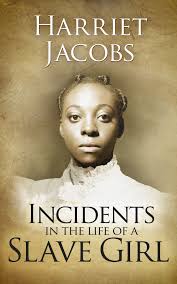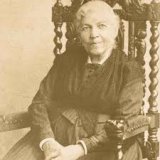Incidents in the Life of a Slave Girl Page #23
Incidents in the Life of a Slave Girl, written by herself is an autobiography by Harriet Jacobs, a mother and fugitive slave, published in 1861 by L. Maria Child, who edited the book for its author. Jacobs used the pseudonym Linda Brent.
Several years after, he passed through our town and preached to his former congregation. In his afternoon sermon he addressed the colored people. "My friends," said he, "it affords me great happiness to have an opportunity of speaking to you again. For two years I have been striving to do something for the colored people of my own parish; but nothing is yet accomplished. I have not even preached a sermon to them. Try to live according to the word of God, my friends. Your skin is darker than mine; but God judges men by their hearts, not by the color of their skins." This was strange doctrine from a southern pulpit. It was very offensive to slaveholders. They said he and his wife had made fools of their slaves, and that he preached like a fool to the negroes. I knew an old black man, whose piety and childlike trust in God were beautiful to witness. At fifty-three years old he joined the Baptist church. He had a most earnest desire to learn to read. He thought he should know how to serve God better if he could only read the Bible. He came to me, and begged me to teach him. He said he could not pay me, for he had no money; but he would bring me nice fruit when the season for it came. I asked him if he didn't know it was contrary to law; and that slaves were whipped and imprisoned for teaching each other to read. This brought the tears into his eyes. "Don't be troubled, uncle Fred," said I. "I have no thoughts of refusing to teach you. I only told you of the law, that you might know the danger, and be on your guard." He thought he could plan to come three times a week without its being suspected. I selected a quiet nook, where no intruder was likely to penetrate, and there I taught him his A, B, C. Considering his age, his progress was astonishing. As soon as he could spell in two syllables he wanted to spell out words in the Bible. The happy smile that illuminated his face put joy into my heart. After spelling out a few words, he paused, and said, "Honey, it 'pears when I can read dis good book I shall be nearer to God. White man is got all de sense. He can larn easy. It ain't easy for ole black man like me. I only wants to read dis book, dat I may know how to live; den I hab no fear 'bout dying." I tried to encourage him by speaking of the rapid progress he had made. "Hab patience, child," he replied. "I larns slow." I had no need of patience. His gratitude, and the happiness imparted, were more than a recompense for all my trouble. At the end of six months he had read through the New Testament, and could find any text in it. One day, when he had recited unusually well, I said, "Uncle Fred, how do you manage to get your lessons so well?" "Lord bress you, chile," he replied. "You nebber gibs me a lesson dat I don't pray to God to help me to understan' what I spells and what I reads. And he does help me, chile. Bress his holy name!" There are thousands, who, like good uncle Fred, are thirsting for the water of life; but the law forbids it, and the churches withhold it. They send the Bible to heathen abroad, and neglect the heathen at home. I am glad that missionaries go out to the dark corners of the earth; but I ask them not to overlook the dark corners at home. Talk to American slaveholders as you talk to savages in Africa. Tell them it was wrong to traffic in men. Tell them it is sinful to sell their own children, and atrocious to violate their own daughters. Tell them that all men are brethren, and that man has no right to shut out the light of knowledge from his brother. Tell them they are answerable to God for sealing up the Fountain of Life from souls that are thirsting for it. There are men who would gladly undertake such missionary work as this; but, alas! their number is small. They are hated by the south, and would be driven from its soil, or dragged to prison to die, as others have been before them. The field is ripe for the harvest, and awaits the reapers. Perhaps the great grandchildren of uncle Fred may have freely imparted to them the divine treasures, which he sought by stealth, at the risk of the prison and the scourge. Are doctors of divinity blind, or are they hypocrites? I suppose some are the one, and some the other; but I think if they felt the interest in the poor and the lowly, that they ought to feel, they would not be so easily blinded. A clergyman who goes to the south, for the first time, has usually some feeling, however vague, that slavery is wrong. The slaveholder suspects this, and plays his game accordingly. He makes himself as agreeable as possible; talks on theology, and other kindred topics. The reverend gentleman is asked to invoke a blessing on a table loaded with luxuries. After dinner he walks round the premises, and sees the beautiful groves and flowering vines, and the comfortable huts of favored household slaves. The southerner invites him to talk with those slaves. He asks them if they want to be free, and they say, "O, no, massa." This is sufficient to satisfy him. He comes home to publish a "South Side View of Slavery," and to complain of the exaggerations of abolitionists. He assures people that he has been to the south, and seen slavery for himself; that it is a beautiful "patriarchal institution;" that the slaves don't want their freedom; that they have hallelujah meetings and other religious privileges.
Translation
Translate and read this book in other languages:
Select another language:
- - Select -
- 简体中文 (Chinese - Simplified)
- 繁體中文 (Chinese - Traditional)
- Español (Spanish)
- Esperanto (Esperanto)
- 日本語 (Japanese)
- Português (Portuguese)
- Deutsch (German)
- العربية (Arabic)
- Français (French)
- Русский (Russian)
- ಕನ್ನಡ (Kannada)
- 한국어 (Korean)
- עברית (Hebrew)
- Gaeilge (Irish)
- Українська (Ukrainian)
- اردو (Urdu)
- Magyar (Hungarian)
- मानक हिन्दी (Hindi)
- Indonesia (Indonesian)
- Italiano (Italian)
- தமிழ் (Tamil)
- Türkçe (Turkish)
- తెలుగు (Telugu)
- ภาษาไทย (Thai)
- Tiếng Việt (Vietnamese)
- Čeština (Czech)
- Polski (Polish)
- Bahasa Indonesia (Indonesian)
- Românește (Romanian)
- Nederlands (Dutch)
- Ελληνικά (Greek)
- Latinum (Latin)
- Svenska (Swedish)
- Dansk (Danish)
- Suomi (Finnish)
- فارسی (Persian)
- ייִדיש (Yiddish)
- հայերեն (Armenian)
- Norsk (Norwegian)
- English (English)
Citation
Use the citation below to add this book to your bibliography:
Style:MLAChicagoAPA
"Incidents in the Life of a Slave Girl Books." Literature.com. STANDS4 LLC, 2025. Web. 25 Feb. 2025. <https://www.literature.com/book/incidents_in_the_life_of_a_slave_girl_947>.








Discuss this Incidents in the Life of a Slave Girl book with the community:
Report Comment
We're doing our best to make sure our content is useful, accurate and safe.
If by any chance you spot an inappropriate comment while navigating through our website please use this form to let us know, and we'll take care of it shortly.
Attachment
You need to be logged in to favorite.
Log In